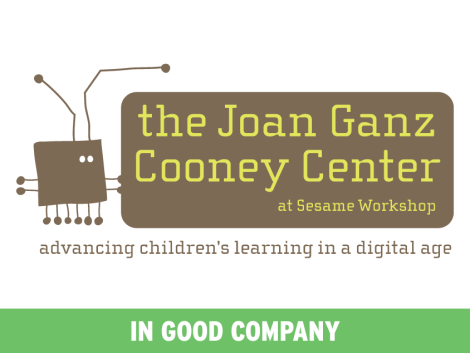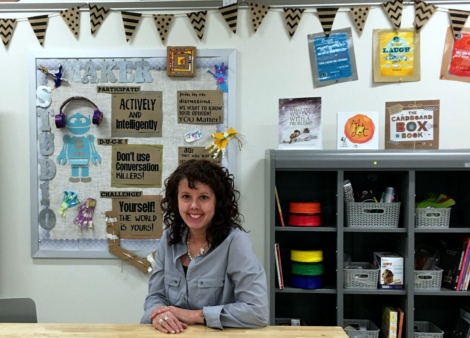
Participate! Digital Games and Family Life Survey
Posted by Andrew Gardner on
The following post comes from our friends at the Joan Ganz Cooney Center –
Are you a parent of a child age 4-13 who uses digital games? If so, you are eligible to take a digital games and family life survey about how games affect our families, co-sponsored by the Joan Ganz Cooney Center at Sesame Workshop and Arizona State University. Parents who complete the survey will have a chance to win a $50 gift card to Amazon.com.
The Digital Games and Family Life Survey will be the first of its kind to gain a sense of the role that digital games are playing in modern family life and routines, across both place and time. Past surveys of digital games have typically queried adults separately from children, or asked parents about their children’s gameplay, but not about their own. This new survey will reconcile these two worlds of gameplay by recognizing that today’s parents grew up playing digital games and that their histories and relationships with them inevitably shape their parenting around their children’s gameplay.
The Cooney Center and ASU are seeking parents of children ages 4 through 13 to take the Digital Games and Family Life Survey. We will keep the survey open for about a month and release a report in Spring 2014 (and of course, we would be more than happy to offer you pre-release access to our findings). Here are just some of the research questions this survey will address:
- To what extent have digital games permeated family routines and rituals, or become essential aspects of family life?
- Where exactly do parents draw the line between what is an acceptable level of violence in digital games and what is not?
- What do parents see as negative effects of their children’s digital game play? What do they see as positive effects?
- To what extent are digital games replacing board games in family entertainment routines?
- What do parents think about the role of digital games in school? What about other types of learning?
- How might parent perceptions of digital games differ by theme, context of play, and purpose of play?
- How do parents’ digital game practices (past and present) intersect with their children’s game play?
- How might all of the above vary by child, parent, and family characteristics such as age, gender, ethnicity, income, parent marital status, and number of siblings
Filed as:
3-5, 6-8, ASU, Digital Citizenship, Digital Learning, Gaming News, Gaming Research, K-3, Sesame Street Workshop, cooney center, educational surveys














